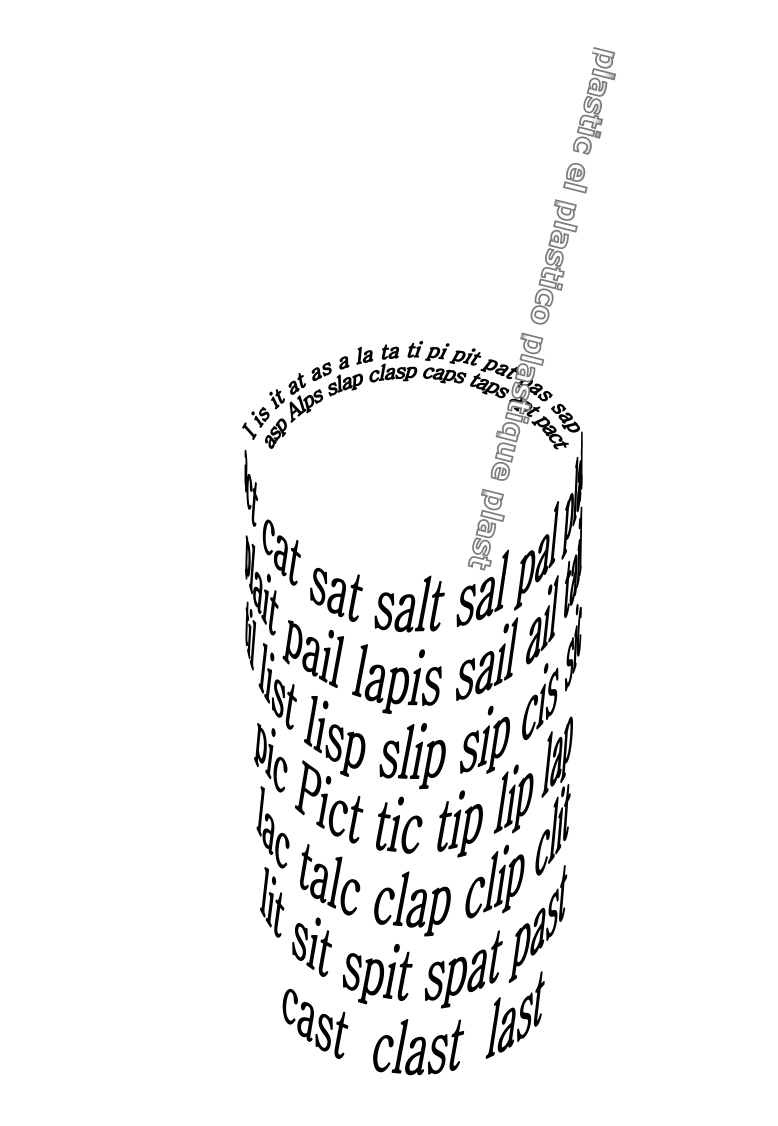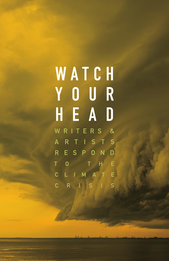|
7/12/2020 POETRY: JESSICA LEGAPING AT THE GROUND WITH THE WINDOW OPEN we are driving up the side of a mountain when we run into a lone black cow. she stands with her knees jutting out of her flesh, black hide strained bursting, wild stitch holding together cloudy blood and burnt milk. you park the car, cutting the ignition, tumbling out. the air is black exhaust wisping away, feels dry and flat, cool against the raw wet of your underarms. the cow lowers its head. and this is the land of the future, here, the scraped dry red of the earth, tufts of grass shuddering in the wind. we walk past metal birds dipping low into the earth, drawing out oil thicker than blood, black as anything. watch the clouds yellowing against the sky, dimming where they meet smoke, joining hands only to unjoin them. watch the sun split itself open like a red, red plum, sharp against the thickening sky. watch bugs claw their way out of the cracks in the dirt, the way they swarm the nearest sweetest thing. making our way back to the highway we stop by the side of a small stream and plunge our hands into it, steal plums from a nearby tree and sink our teeth into them. juice bleeds down your chin, and we wash the red off our hands and watch it pool at the end of the water, the red earth clouding into black exhaust, then wisping away. the cow lowers its head. Jessica Le is currently an undergrad business student at Western University. Her poetry has been published in Western University's Symposium Anthology, CSC's Alt Mag, and is forthcoming in 愈, healing Magazine. She lives in Ottawa.
7/12/2020 FILM & POETRY: FIONA TINWEI LAM
PLASTICPOEMS
Plasticpoems from F T Lam on Vimeo.
Plasticpoems, 2:28 minutes
Written by Fiona Tinwei Lam Animation by Nhat Truong Sound Design byTinjun Niu: This short animated video depicts two concrete/visual poems by poet Fiona Tinwei Lam from her collection of poems Odes & Laments (Caitlin Press, 2019) about marine plastic pollution
PLASTICNIC
Plasticnic from F T Lam on Vimeo.
Plasticnic, 1:13 minutes
Written/Narrated by Fiona Tinwei Lam Animation by Tisha Deb Pillai Sound Design byTinjun Niu: A humorous animated video poem about plastic pollution that shows how we destroy nature while seeking to enjoy ourselves in the great outdoors. The video poem is based on a shaped poem in Odes & Laments (Caitlin Press, 2019)
QUENCH
Note: all words come from letters in “plastic” with no doubling. Each shift occurs with the addition or removal of a single letter and/or a reordering of the letters. "Quench" originally published in Odes & Laments, (Caitlin Press, 2019).
Fiona Tinwei Lam’s third collection of poetry Odes & Laments celebrates the overlooked wonder and beauty in the everyday, while lamenting harm to our ecosystems. She has also authored a children’s book, edited The Bright Well: Contemporary Canadian Poems on Facing Cancer, and co-edited Love Me True: Writers Reflect on the Ins, Outs, Ups & Downs of Marriage with Jane Silcott. Lam won The New Quarterly’s Nick Blatchford Prize and was a finalist for the City of Vancouver Book Award. Her work appears in more than thirty-five anthologies, including The Best Canadian Poetry in English (both 2010 and 2020) and Forcefield: 77 Women Poets of BC. Her award-winning poetry videos have screened at festivals locally and internationally. She teaches at Simon Fraser University’s Continuing Studies. fionalam.net @FTinweiL
7/12/2020 POETRY: WHITNEY FRENCHMINING THE MOON (A DÉCOUPÉ POEM)* I. a fine gray powder meet the Moon’s surface covering lunar regolith sift dust magic, playful probes discover Helium-3: a source of energy trapped in Moon equivalent value of a metric ton a possibility: harness it in reactors harness it in dust and heat 700 degrees centigrade power build specifically to manage large quantities for this main reason: dollars no one sent in proposals to the Moon but "cleaner than fossil fuels." II. kids, inhale the gas of the century! go be coal miners and recovering astronauts go be building well-funded helium reactors go go! roving robotic miner who walked the surface who meet our planet’s needs makes mining lunar program INTERLUNE a go, “probably the only way” says the Director of the University of Fusion Technology Program 59 million dollar lunar orbiter that kind of commercial operation needs fusion technology. putting tens of millions of dollars into bags full of regolith transport back during solar winds, research shown supply energy of a city of ten million for a year a shift in dependence from oil to dust breaking even within our limits push the lunar mining concept push the ocean through wind push us through rare reason. humans make their way cheap. III. ...inhale... 1,997 miners are close to breaking; take the concept back to Earth because “they won't go back to the moon” “going to go back to the moon” “piggyback on —“ “…transport back to the moon” “so far!” “space agency barriers” “don't see any others going back.” ...inhale... a variant of this plan in this playful time, liquefies transport captured like magic moonlighting. ...inhale… balls of gas, may not be right, 1,997 miners close to breaking. “won’t go back.” the miner collects $145, the Program collects $59 million this kind of gas, safer? 1,997 astronauts brought back building up, would pick up dust it's a possibility of choice. IV we are breaking the Ocean limits barrier dollars so now; project another way to repel the breaking, the building, the shift. if we sit on our hands by the factor of 3, we blast through Luna can’t go back no recovering a depth of choice. in fact, main reason seems to be generated in quest: miners shift the Moon’s surface. that’s enough to lure us back assuming we could float on facts, repel reactions geologists walked in enough crude, found a clean source overall helium-3 captured interest stimulus, captured thousands -- but the planet’s needs off the table. the breaking continues years go on… one way or another we trapped billions of humans without a Moon * “Moon Dust: The gray powder may hold a source of clean fuel.” By Dave Cravotta. Final Frontier, November/December Issue, 1996, pg 40. Whitney French is a storyteller and a multi-disciplinary artist. She is the editor of Black Writers Matter, a critically acclaimed anthology published by the University of Regina Press in 2019. Additionally, Whitney French is also the creator of the nomadic workshop series Writing While Black. The work featured is an excerpt of her forthcoming science-fiction verse novel. She lives in Toronto, Ontario.
|
|
ISSN 2563-0067 © Copyright 2023 | Watch Your Head Contributors Sign up for our Newsletter Buy our print anthology Watch Your Head: Writers & Artists Respond to the Climate Crisis (Coach House Books, 2020). |

